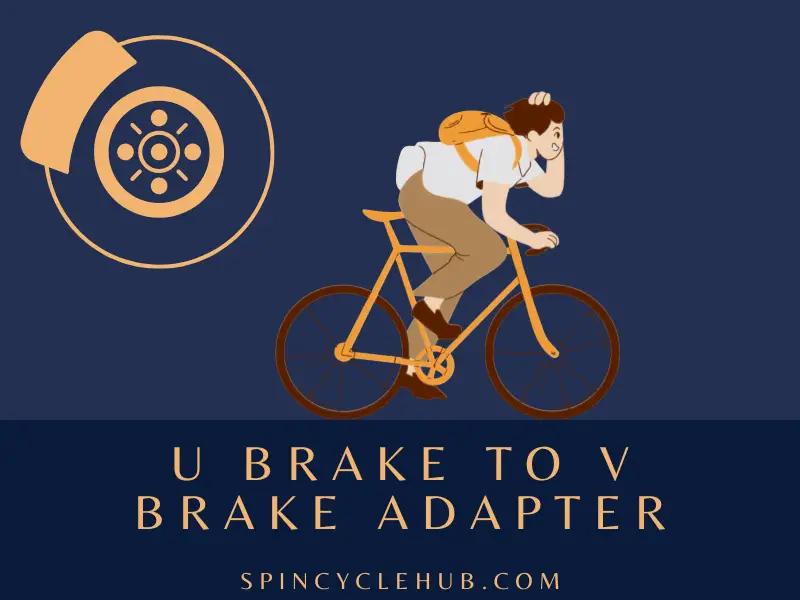When it comes to vehicle safety, braking performance plays a pivotal role. While many drivers rely on the tried-and-true drum brakes, disc brakes have gained significant popularity in recent years. However, a persistent myth claims that disc brakes have no stopping power. In this article, we aim to dispel this misconception and shed light on the true capabilities of disc brakes.
Understanding the Basics of Disc Brakes
Disc brakes are an integral part of the braking system in modern vehicles. Comprised of several key components such as the brake rotor, brake caliper, and brake pads, they work in unison to provide reliable stopping power. As the driver applies pressure to the brake pedal, hydraulic forces are transmitted to the brake caliper, causing the brake pads to clamp onto the spinning brake rotor, effectively slowing down or stopping the vehicle.

The Myth Unveiled: Disc Brakes Lack Stopping Power
Contrary to popular belief, disc brakes do possess significant stopping power. The myth suggesting otherwise stems from a misunderstanding of their function and performance capabilities. While it is true that certain factors can affect the efficiency of disc brakes, such as worn-out brake pads or inadequate maintenance, the fundamental design and engineering of disc brakes are engineered to provide reliable and consistent stopping power.
The Physics Behind Disc Brake Performance
To comprehend the stopping power of disc brakes, it’s essential to understand the underlying physics. When the brake pads clamp onto the spinning rotor, friction is generated, converting the vehicle’s kinetic energy into heat energy. This friction is what slows down and ultimately stops the vehicle. The larger surface area of disc brakes compared to drum brakes allows for better heat dissipation, preventing brake fade and ensuring consistent performance.
Advantages of Disc Brakes
Disc brakes offer several advantages over traditional drum brakes. Firstly, their improved heat dissipation capabilities make them more resistant to brake fade, ensuring reliable performance even during prolonged or intense braking. Additionally, disc brakes provide consistent braking performance in wet conditions, where drum brakes tend to suffer from reduced efficiency due to water accumulation. Furthermore, disc brakes require less maintenance, with brake pads being easily replaceable compared to the intricate adjustments often needed with drum brakes.
Disc Brakes vs. Drum Brakes: A Comparison
While both disc brakes and drum brakes serve the same purpose of slowing down or stopping a vehicle, there are distinct differences between the two systems. Disc brakes, as previously mentioned, offer better heat dissipation and consistent performance in wet conditions. In contrast, drum brakes are more cost-effective to manufacture and are commonly found in rear-wheel braking systems. However, the superior stopping power and performance of disc brakes make them the preferred choice in most modern vehicles.
Disc Brake Maintenance and Upkeep
To ensure optimal disc brake performance, regular inspections and maintenance are essential. It is crucial to monitor the thickness of brake pads and replace them when they become worn-out, as thin brake pads can compromise braking efficiency and cause damage to the brake rotor. Additionally, proper maintenance of brake fluid levels and quality is necessary to maintain the hydraulic pressure required for effective braking.
Ensuring Optimal Disc Brake Performance
Selecting high-quality brake pads is crucial for achieving optimal disc brake performance. There are various types of brake pads available, each with its own advantages and characteristics. Considering factors such as vehicle usage, driving conditions, and personal preferences can help in choosing the most suitable brake pads for your vehicle. Furthermore, regular inspection and replacement of worn-out brake pads will ensure consistent stopping power and extend the lifespan of the disc brake system.
Common Misconceptions About Disc Brakes
There are several common misconceptions surrounding disc brakes. Some drivers worry about noise and vibrations produced by disc brakes during operation. However, advancements in brake pad materials and rotor designs have significantly reduced these concerns, resulting in quieter and smoother braking experiences. Additionally, it is important to note that disc brakes are not limited to high-performance vehicles; they are suitable and widely used in various types of cars, from sedans to SUVs.
Real-Life Experiences: Stories from Disc Brake Users
Countless drivers have experienced the benefits of disc brakes firsthand. From emergency stops to navigating treacherous road conditions, disc brakes have consistently delivered reliable and efficient stopping power. Personal anecdotes from satisfied drivers emphasize the enhanced safety and peace of mind that disc brakes provide on the roads.
The Evolution of Disc Brake Technology
Disc brakes have come a long way since their inception. Originally developed for aircraft use, disc brakes gradually made their way into automotive applications. Over time, advancements in materials, design, and manufacturing processes have led to improved disc brake technology. From slotted and drilled rotors to ceramic brake pads, these innovations have further enhanced the stopping power and overall performance of disc brakes.
Expert Opinions on Disc Brake Performance
Automotive professionals and engineers widely acknowledge the stopping power of disc brakes. Their expertise and insights reaffirm the effectiveness and reliability of disc brake systems. With their in-depth knowledge and experience, these experts emphasize the importance of proper maintenance and selecting quality components to maximize the performance of disc brakes.
Disc Brakes in Sports and Racing Cars
Sports and racing cars demand exceptional braking performance, and disc brakes are the go-to choice for such high-performance vehicles. The ability to handle intense braking forces repeatedly without experiencing brake fade is critical in these applications. Enthusiasts and professionals in the racing community praise the stopping power and consistent performance of disc brakes, which allow for precision control and confidence on the track.
Safety Considerations and Regulations
Safety is paramount when it comes to braking systems. Adhering to safety standards and regulations ensures that disc brakes meet the necessary requirements for performance and reliability. Various organizations and regulatory bodies set guidelines and conduct tests to ensure that vehicles equipped with disc brakes meet the necessary safety standards, providing drivers and passengers with peace of mind.
Myth Busted: Disc Brakes Are Powerful Stoppers
In conclusion, the myth suggesting that disc brakes have no stopping power is unequivocally debunked. Disc brakes offer significant advantages over drum brakes, including enhanced heat dissipation, consistent performance in wet conditions, and low maintenance requirements. Proper maintenance, including regular inspection and replacement of worn-out brake pads, is crucial to ensure optimal disc brake performance. Countless drivers and experts attest to the effectiveness of disc brakes, and their widespread use in various types of vehicles further reinforces their stopping power.

FAQs:
- Can disc brakes fail completely?
- While disc brakes can experience issues and malfunctions, complete failure is rare. Regular maintenance and inspections help identify and address potential problems before they escalate.
- Are disc brakes suitable for all types of vehicles?
- Yes, disc brakes are widely used in various types of vehicles, from compact cars to heavy-duty trucks.
- What are the signs of worn-out brake pads?
- Signs of worn-out brake pads include squeaking or grinding noises, reduced braking performance, and vibrations during braking.
- Can I upgrade from drum brakes to disc brakes?
- In many cases, it is possible to upgrade from drum brakes to disc brakes. However, it is recommended to consult with a professional mechanic to ensure compatibility and proper installation.
- How long do disc brakes typically last?
- The lifespan of disc brakes can vary depending on driving habits, road conditions, and maintenance. On average, disc brakes can last anywhere from 30,000 to 70,000 miles or more before requiring replacement.
- “The Science Behind Disc Brakes“ – This informative article delves into the scientific principles behind the functioning of disc brakes, explaining the physics of friction and heat generation. It also discusses the advantages of disc brakes and their performance compared to drum brakes.
- “How to Maintain and Replace Disc Brake Pads“ – This comprehensive guide provides step-by-step instructions on maintaining and replacing disc brake pads. It covers essential aspects such as inspection, pad replacement, and brake fluid maintenance, ensuring optimal disc brake performance and safety.
Watch this one,
Video Credits – BikeRadar
DOWNLOAD THIS ARTICLE :Breaking the Silence on Disc Brakes
You May Also Like
-
Spank Vibrocore Bars vs Carbon Bars: Choosing the Right Handlebars for Your Ride
-
SRAM MTH 746: Unleashing the Power of Instantaneous Response



